|
|
|
Editor's note
|
|
Kia ora tatou and welcome to this week’s newsletter.
This week, Massey University lecturer in human development Cat Pausé responds to a call by the British Psychological Society that we should change how we talk about fatness and no longer use the phrase “obese people”, but instead, “people with obesity” or “people living with obesity”. She argues that the proposed language change assumes that obesity is a disease to be cured, which in turn only serves to reinforce stigma, rather than prevent it.
AUT law expert Alexander Gillespie explores the second phase of gun law reforms, following the Christchurch mosque shootings on 15 March. This part of the process includes setting up a register for all firearms, which would be the third time in recent history New Zealand has attempted to reintroduce one.
The character of Judge Dredd was first introduced in 1977, in the second issue of the comic 2000AD. His creators envisioned the character as a no-nonsense cop - “a psycho character with no feelings”. The Dredd comics were designed to be satirical, but AUT lecturer in popular culture Justin Matthews writes that the parallels with contemporary society appear uncanny and symbolise the demise of democracy and freedom in favour of authoritarian regimes.
And this week’s Climate Explained explores the carbon and environmental footprint of electric cars.
Many thanks for reading. Feel free to share this newsletter - or any other stories on the New Zealand page - with friends and colleagues who may be interested. Ka kite anō au ki a koutou.
|
Veronika Meduna
New Zealand Editor
|

|
|
Top stories
|

Fat activists argue fat is the most appropriate word to describe their bodies.
Yulia Grigoryeva/Shutterstock
Cat Pausé, Massey University
The British Psychological Society is calling for a language change, from 'obese people' to 'people living with obesity'. But using the word obesity can reinforce rather than prevent stigma.
|
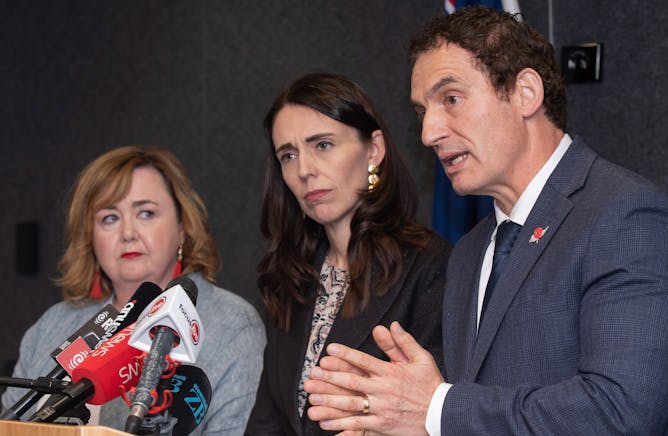
New Zealand’s PM Jacinda Ardern, police minister Stuart Nash (right) and the minister for Christchurch regeneration Megan Woods announcing stronger gun laws and the creation of a firearms registry.
AAP/David Alexander
Alexander Gillespie, University of Waikato
A register of all firearms is part of the next stage of New Zealand's gun law reform, following the Christchurch mosque shootings.
|
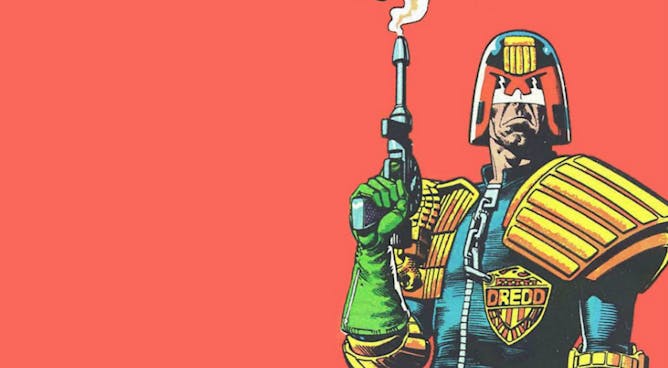
The character of Judge Dredd was designed to be satirical, depicting the ultimate draconian cop.
Supplied
Justin Matthews, Auckland University of Technology
The fictitious world of Judge Dredd highlights authoritarianism, including laws against outsiders, walls around cities and rules that deny people basic rights. Are the Dredd comics a cautionary tale?
|

The best way to compare emissions from electric cars is to assess all phases of a life cycle analysis.
from www.shutterstock.com
Md Arif Hasan, Victoria University of Wellington; Ralph Brougham Chapman, Victoria University of Wellington
In New Zealand, where more than 80% of electricity is renewable, the carbon footprint of electric cars is 62% lower than that of fossil cars. But their lithium battery has other environmental impacts.
|
From The Conversation's international editions
|
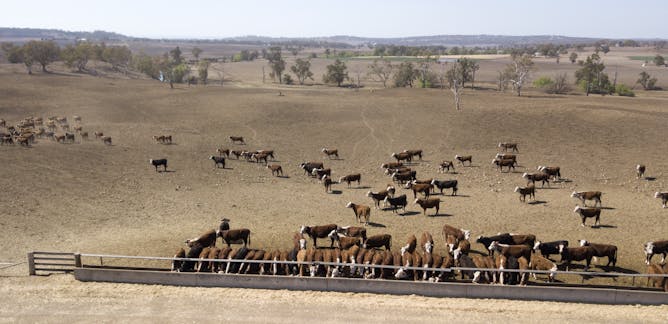
Emma Kathryn White, University of Melbourne
Yes, Australia naturally cycles through dry and wet periods. But that doesn't mean we can simply build more dams and trust they'll be filled.
| |

Jennifer Beckett, University of Melbourne; Fiona R Martin, University of Sydney; Venessa Paech, University of Sydney
Mark Zuckerberg may try to minimise their concerns, but Facebook moderators and other online workers are beginning to organise for their own protection.
|

John E. Finn, Wesleyan University
Sanctuaries that protect everything from gun rights to the unborn are popping up across the country. They challenge federal law and the shared understanding of its power and role in the US.
| |
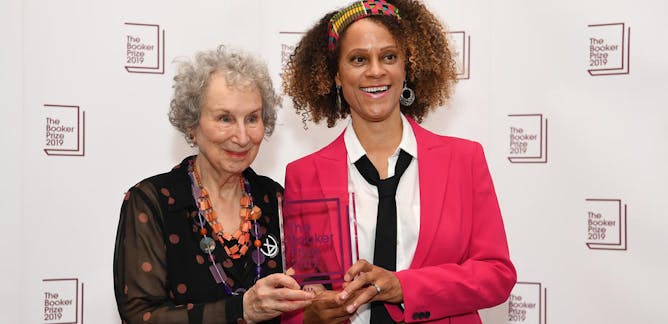
Clare Hutton, Loughborough University
Two brilliant novels, two deserving writers. Sometimes you need to have two prizes.
|
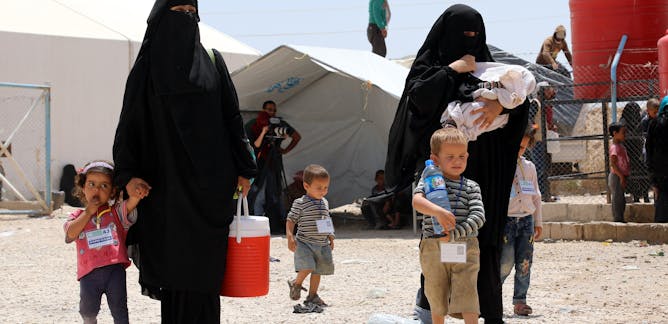
Kerstin Carlson, University of Southern Denmark
Turkey’s invasion of northern Syria may force Western states to finally address what to do with adherents of Islamic State. Here are the options.
| |
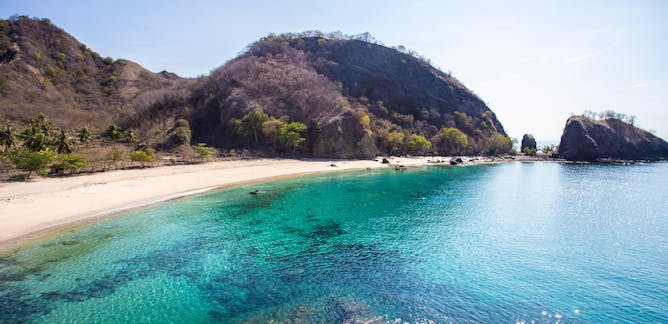
José Alexandre Felizola Diniz-Filho, Universidade Federal de Goias; Pasquale Raia, University of Naples Federico II
New research models how the Homo floresiensis species could have evolved its small size remarkably quickly while living on an isolated island.
|

Aidan Forth, MacEwan University
Concentration camps are by no means only synonymous with Nazi terror or totalitarianism. In fact, concentration camps have deep roots in the culture and politics of Anglo-American liberal democracies.
| |
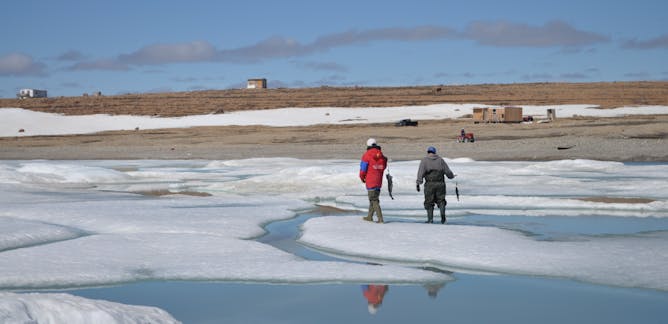
Janet Jull, Queen's University, Ontario; Inuit Medical Interpreter Team
A 'shared decision-making' model enables collaboration with Indigenous communities within Canada's health-care system - to respond to TRC Calls to Action and address rising cancer rates.
|

Michael J. Armstrong, Brock University
After cannabis was legalized in Canada last year, we saw increasing supplies, stores and sales. Next comes edibles, vapes and more emphasis on price and quality.
| |
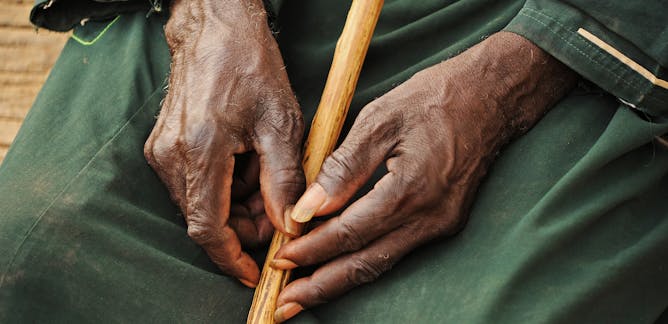
Carlos Riumallo Herl, Erasmus University Rotterdam; David Canning, Harvard T.H. Chan School of Public Health; Mark A. Collinson, University of the Witwatersrand
It's evident from research that while health influences economic well-being, the inverse is also true, economic well-being influences health.
|
|
|
| |
| |
| |
| |
| |
| |
|
|
|
|
|
|
|